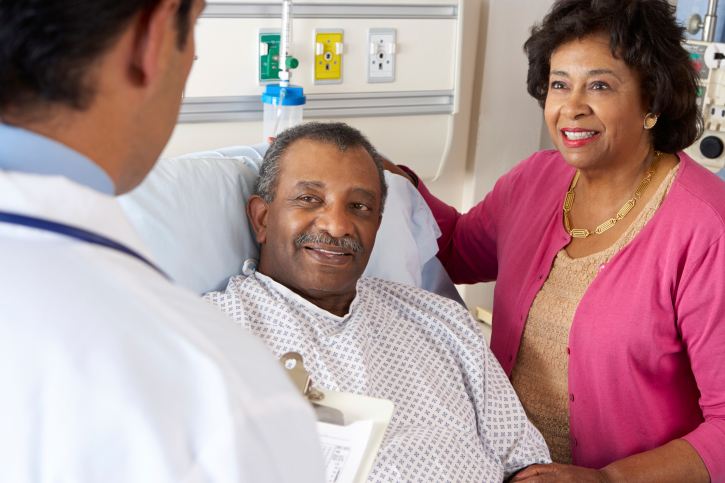If you are recovering from addiction, you may have made plans to eat better and exercise. It also helps with improving your overall physical and mental health. This guide will explain what should be included in your diet, the kind of exercise you need, and other practices to preserve your mental health.
If you need additional information on dual diagnosis, you can explore the Epiphany Wellness website. You’ll learn more about the process and how your treatment is being handled. With that in mind, let’s dig deeper and talk more about how food, exercise, and good mental health are essential to recovery.
The right kind of healthy foods can benefit you mentally
If you want to get your mental health right, your diet can play a role. What kind of foods can be a game-changer? Let’s take a look at some of the following choices and why they are important:
Whole foods
Want something without the preservatives or additives? Whole foods are the best. In fact, foods that contain additives, food colorings, and preservatives can worsen mood rather than help it.
The less processed it is, the better. Some healthy ingredients will play a role in boosting your mood. The best whole foods are your fruits and veggies that are fresh.
Antioxidants
Antioxidants are great for fighting inflammation. However, it can also keep your mind right as well. You can get a good dose of these antioxidants eating berries, salmon, black chia seeds, and even dark chocolate.
Also, leafy greens are not out of the question if you are looking for a generous amount of antioxidants. Plus, with inflammation at bay, you’ll also be able to continue to exercise and keep yourself physically fit.
Vitamin D
Serotonin is great for our mental health. If we get sunlight, we’ll get a good amount of it. However, the same applies when we include Vitamin D in our diet.
You can get this vitamin in plenty of vegetables. However, mushrooms are jam-packed with it. You’d be hard-pressed to find a nice additive for salads quite like mushrooms.
Or you can eat them straight up. Either way, they are great for serotonin and mood boosts.
Exercising and mental health
Now that we have put together a sample list of what to include in your diet, we can now focus on exercise. You’ll be able to manage any mental issues you might have. If you are looking to fix your mind right (and don’t have such disorders), exercise can be helpful.
Here are the mental health benefits that you can experience with exercise:
Keeps stress under control
If you are stressed on a regular basis, you can reduce it. Of course, good ol’ exercise can do that. Whether it’s a walk around the block or even biking or jogging, you’ll feel great.
On top of that, you’ll also notice a change in your cognition abilities. One noticeable feature is being able to think clearly in times of stress.
Decreases depression and anxiety
You may be dealing with either of these disorders. If you are working out on a regular basis, your endorphins will hit high levels. Because of this, you’ll feel a lot better about yourself.
Depression and anxiety will be nowhere in sight. Moderate exercise a few times a week can really do wonders for you. Especially if you have been dealing with depression or anxiety your entire life.
You’ll feel better about yourself
An increase in self-confidence will be something you’ll acquire when working out regularly. You’ll wake up feeling refreshed and always in a good mood. You’ll feel like your clothes fit better.
You may also feel like you’ve dropped a few pounds. And hey, you probably did. Nevertheless, you’ll be able to get the job done without feeling out of shape.
You’ll sleep better at night
With good exercise, you’ll be able to sleep better at night. As with better sleep quality, your mental health will improve as well. If you are recovering from addiction, you’ll notice a huge change.
There was a time when your sleep patterns were quite irregular. However, you learned how to have structure during your treatment. Your circadian rhythm will be reset and you’ll feel like a completely different person.
Good mental health practices
When it comes to improving your mental health, there are a few things you can put into practice. Let’s briefly take a look at what they are:
Mindfulness
Mindfulness can help you improve your overall mental health. It can help you manage stress better. It can also make you more aware of what’s going on with yourself and what’s around you.
You can practice this by simply performing regular meditative exercises. It can be done in as little as five minutes. Breathe in, breathe out, and just focus on the breath. It’s that simple.
Journaling
Journaling will be a good thing for you to do on a daily basis. You can talk about how you’re feeling, what happened during your day, and so much more.
You’ll feel better knowing you can put your thoughts on paper. Or you can type it out on a word document, if it’s easier for you. Either way, you can be sure to do this so you can talk about how you feel and only keep it to yourself.
Whether it’s a pen and paper or typing fingers, give it a shot.
Final Thoughts
Addiction recovery is the perfect opportunity to improve your diet. You will also take the time to plan your regular exercise routine and practice good mental health. Yes, it can be challenging – but you can get it done.
Before you know it, you’ll be living a more fulfilling life. You’ll look back and see how far you have come from your past life of addiction. You’ve made an important life decision and things couldn’t be better.
If you haven’t thanked yourself enough, keep doing it. We hope this guide has been helpful for you.


 Home
Home









